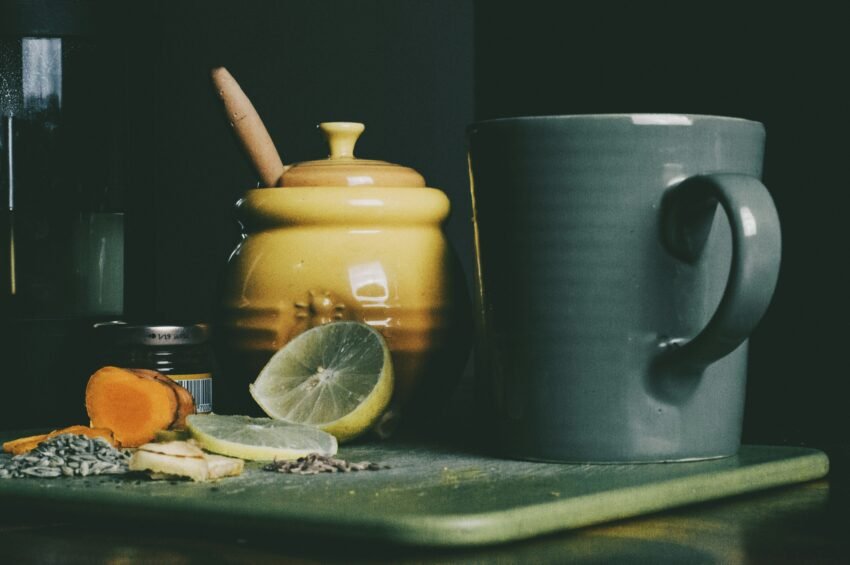If you’ve ever experienced a urinary tract infection (UTI), you know how uncomfortable and inconvenient it can be. But did you know that there are fast and effective remedies you can try at home? From drinking plenty of water to incorporating certain foods into your diet, this article will guide you through some easy and natural ways to find relief from UTI symptoms. Say goodbye to discomfort and hello to a happier, healthier you!
Hydration
Drink plenty of water
One of the most important steps you can take to alleviate the symptoms of a urinary tract infection (UTI) is to drink plenty of water. Staying hydrated helps to flush out bacteria from your urinary system and dilutes your urine, making it less irritating. Aim to drink at least eight glasses of water a day, or more if you’re physically active or if the weather is hot.
Increase fluid intake
In addition to water, you can increase your fluid intake by consuming other beverages such as herbal teas, clear soups, and fruit juices. These fluid options can help to keep you hydrated and assist in flushing out bacteria from your system. However, it’s important to avoid caffeine and alcohol as they can irritate the bladder and worsen UTI symptoms.
Avoid caffeine and alcohol
Caffeine and alcohol are known diuretics, which can increase urine production and potentially worsen UTI symptoms. It’s best to avoid or limit your intake of beverages such as coffee, tea, energy drinks, and alcoholic beverages. Opt for water and other non-irritating fluids instead to support your body’s natural healing process.
Urinating
Urinate frequently
When you have a UTI, it’s important to urinate frequently to help flush out bacteria from your urinary system. Don’t try to hold in your urine for an extended period of time, as this can allow bacteria to multiply and worsen your symptoms. Make sure to prioritize regular bathroom breaks throughout the day, even if you don’t feel the urge to go.
Make sure to fully empty your bladder
When you urinate, make sure to fully empty your bladder. Lingering urine in your bladder can provide a breeding ground for bacteria. Take your time when urinating and relax your pelvic muscles to ensure a complete emptying of your bladder. It may also help to lean forward slightly while sitting on the toilet to fully empty your bladder.
Urinate before and after sexual activity
Urinating before and after sexual activity can help prevent bacteria from entering your urethra and potentially causing a UTI. This simple practice can help flush out any bacteria that may have been introduced during sexual intercourse. Remember, even if you don’t feel the urge to urinate, it’s important to make it a habit to empty your bladder before and after sexual activity.
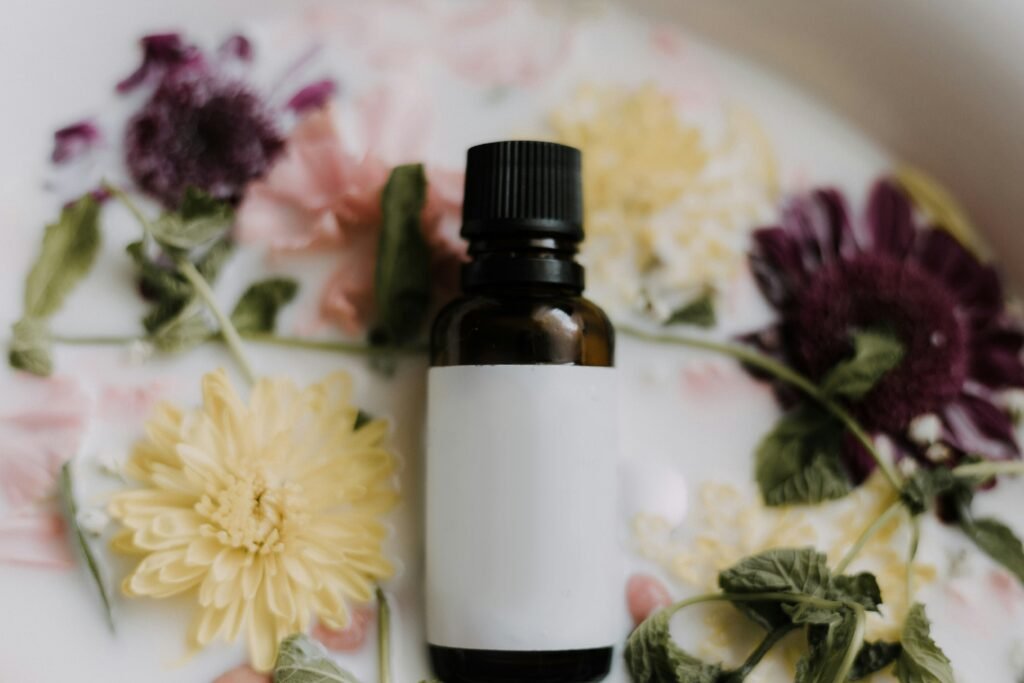
Heat
Apply a heating pad to the lower abdomen
Applying a heating pad to your lower abdomen can provide relief from the pain and discomfort associated with a UTI. The warmth from the heating pad can help soothe the area and relax your muscles, reducing any cramping or spasms. Make sure to use a heating pad on a low setting and place a cloth or towel between the pad and your skin to avoid burns.
Take warm baths
Taking warm baths can also help alleviate UTI symptoms. The warm water can provide a soothing effect on your lower abdomen and pelvic region, relieving pain and discomfort. Add some Epsom salts to your bathwater for additional relaxation and pain relief. However, avoid sitting in a bath for too long, as prolonged moisture can create an environment that promotes bacterial growth.
Use hot water bottles
If you don’t have a heating pad, a hot water bottle can be a great alternative. Fill the hot water bottle with hot (but not scalding) water and place it on your lower abdomen or lower back. The warmth from the hot water bottle can help relax your muscles and alleviate any pain or discomfort caused by the UTI. Remember to wrap the hot water bottle in a cloth to prevent burns.
Adequate Rest
Get enough sleep
Getting enough sleep is essential for your overall health and wellbeing, especially when you’re trying to recover from a UTI. During sleep, your body can focus on repairing and healing itself. Aim for seven to eight hours of quality sleep each night to support your immune system and aid in the recovery process.
Take time for rest and relaxation
In addition to getting enough sleep, it’s important to take breaks throughout the day for rest and relaxation. UTIs can make you feel fatigued and drained, so listen to your body and prioritize self-care. Engage in activities that help you relax and reduce stress, such as reading, meditating, or taking a leisurely walk. Taking time for yourself can promote healing and improve your overall well-being.
Avoid strenuous activities
While it’s important to stay active and maintain a healthy lifestyle, it’s best to avoid strenuous activities when you have a UTI. Activities that put excessive pressure or strain on your bladder and pelvic region can worsen your symptoms and delay your recovery. Opt for light exercises, such as gentle stretching or short walks, until you’re feeling better.
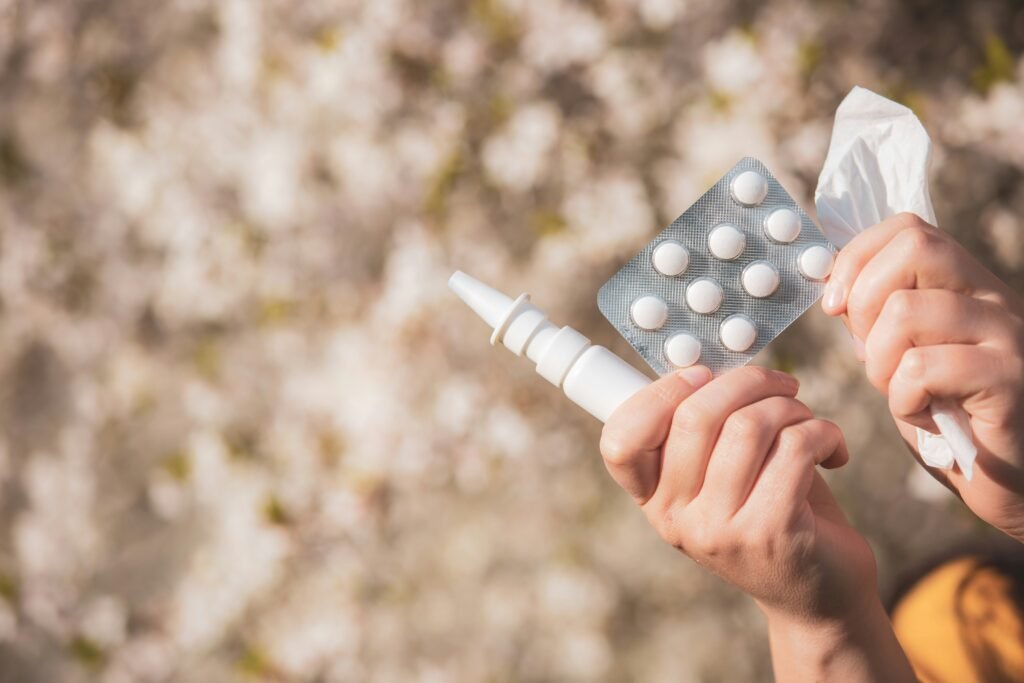
Home Remedies
Take over-the-counter pain relievers
Over-the-counter pain relievers, such as ibuprofen or acetaminophen, can help alleviate the pain, discomfort, and fever associated with a UTI. Make sure to follow the recommended dosage instructions and consult your healthcare provider if you have any underlying medical conditions or if you’re taking other medications.
Use a UTI home test kit
If you’re experiencing mild UTI symptoms and want to confirm your suspicions before seeking medical advice, you can use a UTI home test kit. These kits typically include test strips that can detect the presence of bacteria, white blood cells, and nitrites in your urine. However, it’s important to note that home test kits are not as accurate as laboratory tests, so it’s always best to consult with a healthcare professional for a definitive diagnosis.
Take probiotics
Probiotics are beneficial bacteria that can help maintain a healthy balance of bacteria in your urinary and digestive systems. They can help prevent the overgrowth of harmful bacteria that can lead to UTIs. Consider incorporating probiotic-rich foods into your diet, such as yogurt or fermented vegetables, or taking a probiotic supplement. However, consult your healthcare provider before starting any new supplements, especially if you have any underlying medical conditions.
Dietary Changes
Consume foods with natural antibiotics
Certain foods have natural antibiotic properties that can help fight off bacterial infections, including UTIs. Incorporate foods such as garlic, ginger, onions, and cranberries into your diet. Garlic and onion can help boost your immune system, while ginger has anti-inflammatory properties. Cranberries, in particular, contain compounds that prevent bacteria from adhering to the walls of the urinary tract.
Increase vitamin C intake
Vitamin C is known for its immune-boosting properties, and it can also help prevent UTIs. Increase your intake of vitamin C-rich foods, such as citrus fruits, strawberries, bell peppers, and leafy green vegetables. You can also consider taking a vitamin C supplement, but consult your healthcare provider before starting any new supplements.
Avoid foods that irritate the bladder
Some foods can potentially irritate the bladder and exacerbate UTI symptoms. Avoid or limit your consumption of foods such as spicy foods, caffeine, artificial sweeteners, carbonated beverages, and citrus fruits. These foods can irritate the bladder lining, leading to increased pain and discomfort. Listen to your body and identify any specific food triggers that worsen your symptoms.
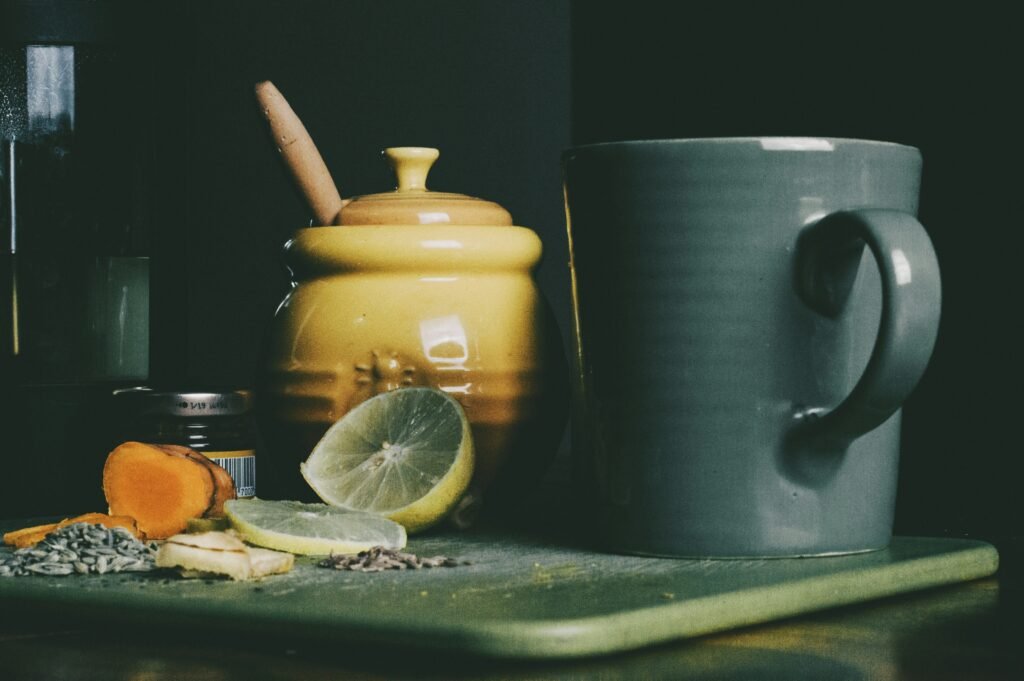
Herbal Remedies
Drink cranberry juice
Cranberry juice has long been touted as a natural remedy for UTIs. It contains compounds called proanthocyanidins, which prevent bacteria from adhering to the urinary tract walls. Opt for unsweetened cranberry juice or cranberry supplements without added sugars. However, it’s important to note that cranberry juice alone is not a cure for UTIs and should be used as part of a comprehensive treatment plan.
Take D-mannose supplements
D-mannose is a naturally occurring sugar that can help prevent bacteria from sticking to the walls of the urinary tract. It’s available in supplement form and can be an effective alternative to antibiotics for preventing and treating UTIs. However, consult with your healthcare provider before starting any new supplements, especially if you have any underlying medical conditions.
Try herbal teas like green tea or chamomile
Herbal teas, such as green tea or chamomile tea, can have soothing properties that may help alleviate UTI symptoms. Green tea is rich in antioxidants and can boost your immune system, while chamomile tea has calming effects that can help reduce inflammation and relieve pain. Enjoy these teas throughout the day for a comforting and hydrating beverage.
Good Hygiene
Wipe from front to back
Proper hygiene is crucial in preventing the spread of bacteria that can cause UTIs. When wiping after using the toilet, make sure to wipe from front to back. This technique helps prevent bacteria from the anal area from spreading to your urethra and urinary tract. It’s a simple yet effective step in maintaining good hygiene and reducing the risk of UTIs.
Avoid using irritating hygiene products
Some hygiene products, such as scented soaps, bubble baths, and feminine hygiene sprays, can irritate the delicate skin around your genital area and disrupt the natural balance of bacteria. Opt for unscented and gentle soaps when washing your genital area, and avoid using any products that cause irritation or discomfort.
Use unscented and gentle soaps
When washing your genital area, opt for unscented and gentle soaps specifically formulated for this sensitive area. Harsh soaps or those containing fragrances can disrupt the natural balance of bacteria and potentially lead to UTIs. Look for mild, pH-balanced cleansers that won’t cause irritation or dryness.
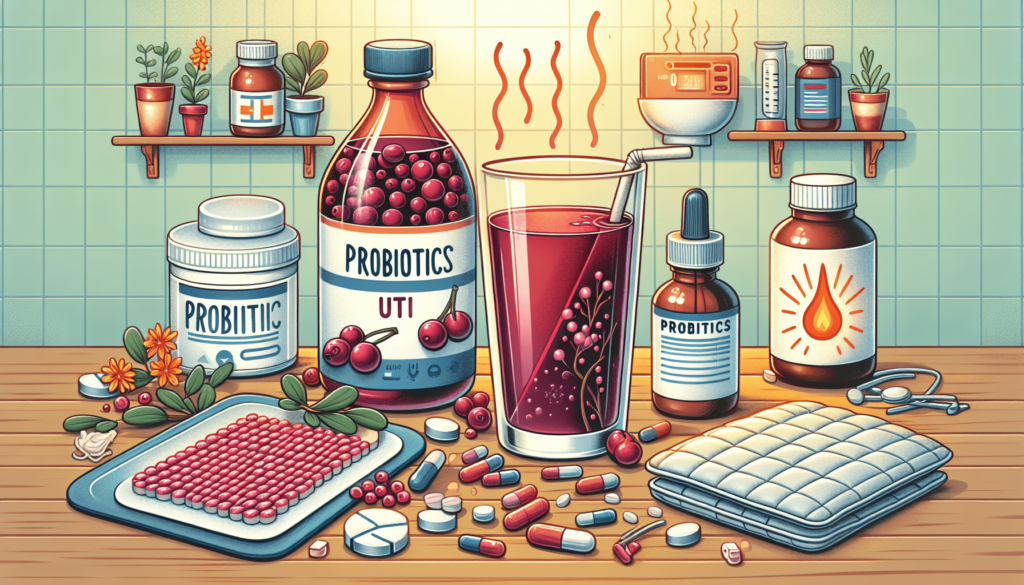
Medical Consultation
Contact your healthcare provider
While home remedies and self-care practices can provide temporary relief, it’s important to contact your healthcare provider if you suspect you have a UTI. They can provide a definitive diagnosis and recommend appropriate treatment based on your symptoms and medical history.
Seek medical advice or treatment
If your symptoms persist or worsen despite home remedies, seek medical advice or treatment. A healthcare provider can prescribe antibiotics to target the specific bacteria causing your UTI. It’s essential to complete the full course of antibiotics as prescribed to ensure the infection is completely eradicated.
Follow prescribed medication
If your healthcare provider prescribes medication for your UTI, it’s crucial to follow their instructions and complete the full course of treatment. Even if your symptoms improve, stopping medication prematurely can lead to a recurrence of the infection or antibiotic resistance. Make sure to take the medication as prescribed, at the recommended dosage and frequency.
Prevention
Drink plenty of water regularly
Prevention is key when it comes to UTIs. Make it a habit to drink plenty of water regularly, as staying hydrated helps flush bacteria out of your urinary system. Aim for at least eight glasses of water a day, or more if you’re physically active or in hot weather.
Empty your bladder before and after sexual activity
Emptying your bladder before and after sexual activity can help flush out any bacteria that may have entered your urethra during intercourse. This simple step can reduce the risk of developing a UTI. Don’t hesitate to communicate with your partner about the importance of this practice for your mutual health and well-being.
Use proper hygiene techniques
Maintaining proper hygiene is crucial in preventing UTIs. Wipe from front to back after using the toilet to prevent the spread of bacteria. Avoid using irritating hygiene products that can disrupt the natural balance of bacteria in your genital area. Use unscented and gentle soaps when washing your genital area to avoid irritation and infection.
In conclusion, taking proactive steps to alleviate the symptoms of a UTI can provide fast relief and promote a speedy recovery. By staying hydrated, practicing good hygiene, and incorporating home remedies and dietary changes, you can support your body’s natural healing process and reduce the likelihood of recurring UTIs. However, it’s important to consult with a healthcare provider for a definitive diagnosis and appropriate treatment, especially if your symptoms persist or worsen. Remember, prevention is key, so make sure to prioritize proper hygiene techniques and stay well-hydrated to reduce the risk of future UTIs.


